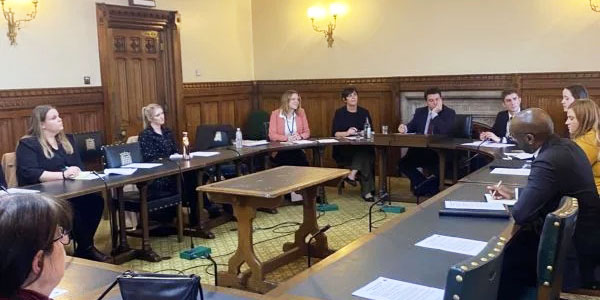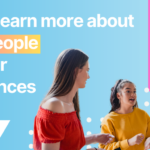On the 25th of October 2022, the APPG for Youth Employment held its first meeting of its new inquiry exploring the impact of mental ill health on young people accessing the labour market and good quality employment.
The session was held in the House of Commons, attended by the Chair for the APPG for Youth Employment Shaun Bailey MP, Stephen Timms MP, and a number of stakeholders and sector experts.
The session heard key evidence from two expert speakers on youth employment and heard testimony from two young people sharing their own experience of mental ill health and the impacts this has had on them and their journey into work.
Evidence from the “Not Working Report
In this first session, the inquiry heard from Louise Murphy, an economist at Resolution Foundation, who gave evidence based on her report “‘Not working’ Exploring changing trends in youth worklessness in the UK, from the 1990s to the Covid-19 pandemic”. Louise set out the long term trends of youth worklessness and the changes in the composition of young people out of work since the 1990s.
The inquiry heard that economic inactivity due to ill health had increased since the 1990s, as well as displaying a worrying increase in long-term economic activity amongst young men.
Louise also informed the inquiry that her research had found that:
- 2 out of 3 young people who are economically inactive also have a common mental health disorder, compared to 40% of those who are unemployed and 22% of those who are in employment.
- Young people with mental health problems are more likely to stay workless for longer.
- Young people who are inactive due to sickness or disability are not only more likely to have a mental health problem, but their mental health problems also tend to be worse than other groups of inactive people.
- The impact of mental health problems on long term worklessness is of particular concern due to the rising frequency and severity of mental health problems amongst young people.
Evidence from the 2022 Youth Voice Census
The inquiry heard evidence from Lauren Mistry, Director of Strategy, Impact and Communications at Youth Employment UK, who gave evidence from the 2022 Youth Voice Census. Lauren told the inquiry that the Youth Voice Census revealed young people were increasingly concerned about their mental health and this was affecting their wellbeing and confidence when looking for work.
Summary of key findings:
- Young people are feeling worried and anxious about their future, those who had protected characteristics also feel that difference was also a disadvantage.
- Young people have found it difficult to find support networks during the pandemic and for many the pandemic has acted as a catalyst for mental health problems and existing issues.
- Confidence and self-belief for young people are at an all-time low and those with protected characteristics had confidence and self-belief scores at least 10% lower than other groups.
- For those looking for work, Covid 19 continued to have the biggest impact on their mental health with over half (52.6%) stating that their mental health had been impacted ‘a lot’ or ‘a great deal’.
- 43.6% of young people feel that their motivation to apply for opportunities has been impacted ‘a lot’ or a great deal’.
- Anxiety was identified as the biggest barrier for young people accessing work, 51% of young people not in work told us that anxiety was the biggest barrier to them accessing work.
Mental health and work: Youth Voice
The inquiry finally heard evidence from two youth ambassadors about their own experiences of mental health and work.
Kesley, 24, spoke about the challenges of working throughout the pandemic and the lack of support available for young people in the workplace when they are struggling with their mental health. Kesley called employers to be more understanding of mental ill health and their role in supporting young workers who are struggling.
Toni-Ann, 27, explained how mental health had presented significant barriers in her search for work and described the difficulty she faced when trying to find appropriate support to help her find a job. Toni-Ann said that she would like to see employers offer more accessible work for people with ill mental health and improved in work support for young people with mental health and wellbeing challenges.
The second meeting of the inquiry will be held on November 29th. You can sign up here.
If you would like to contribute to the inquiry, you can find further details on the inquiry questions and guidance for submissions here.












